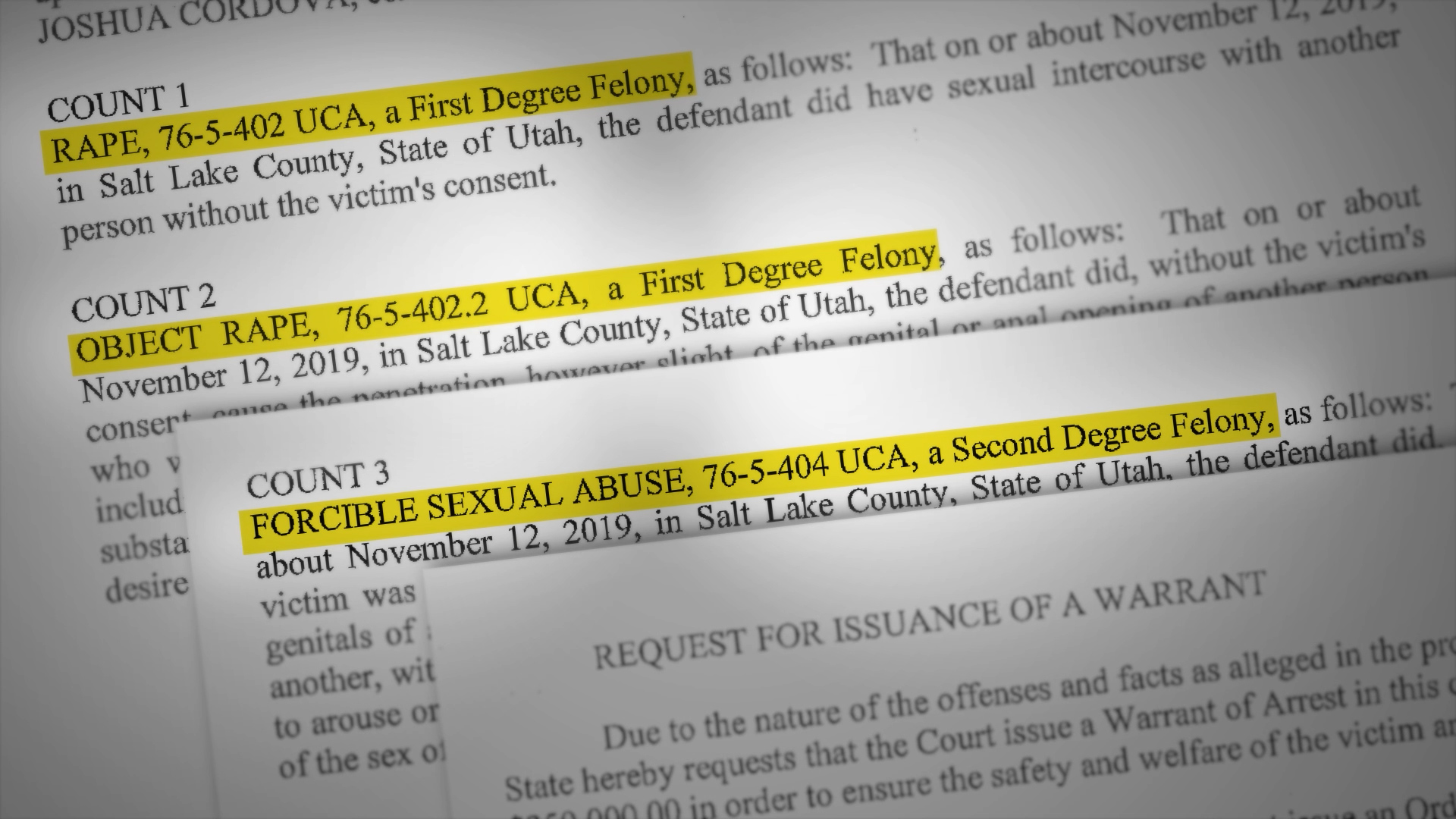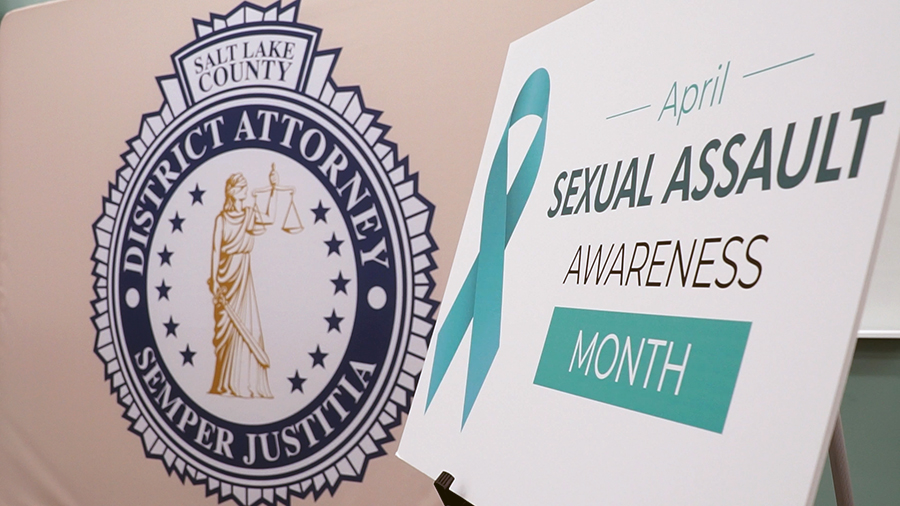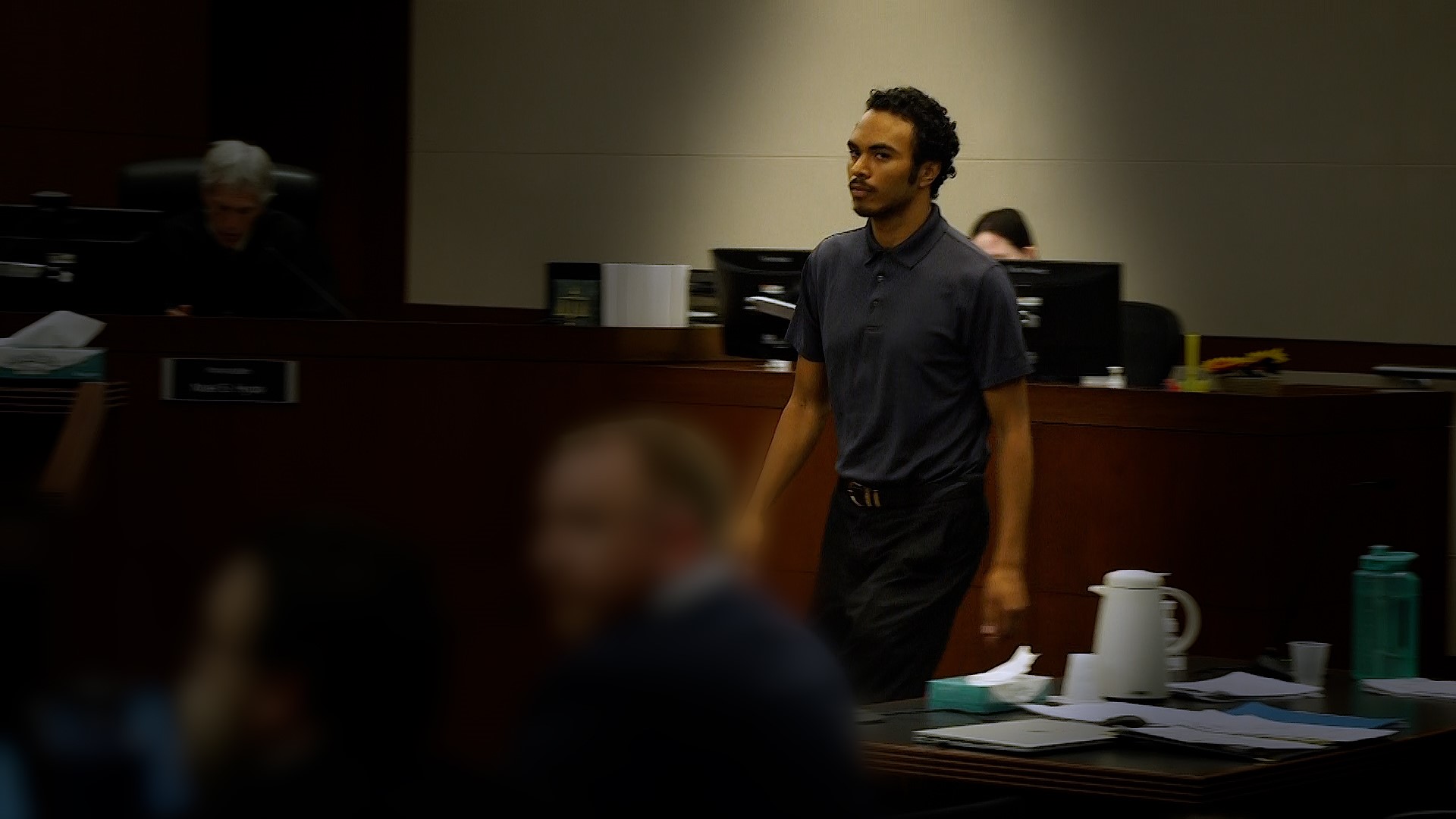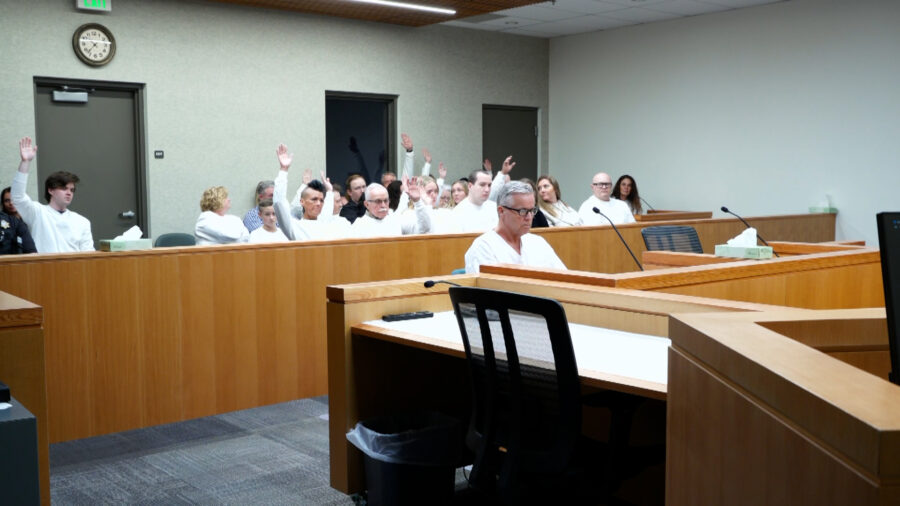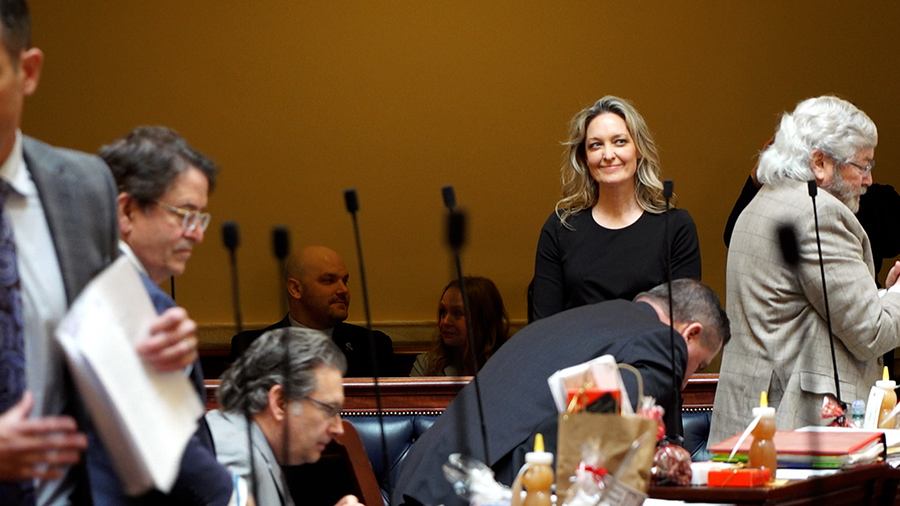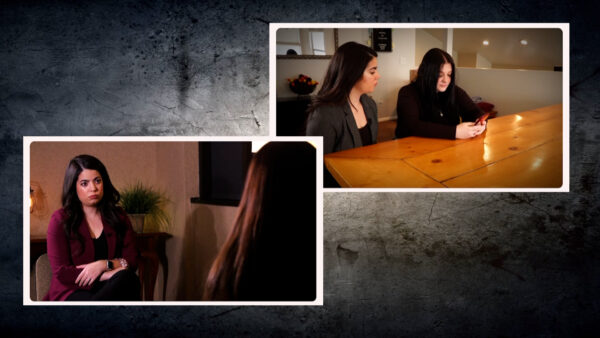Many cases, few prosecutions: KSL Investigators examine Utah’s ‘second look’ review of rape cases
Sep 11, 2023, 10:24 PM | Updated: Jan 27, 2024, 4:01 pm
Editor’s note: This story is the first of two parts examining the impact of a unique initiative in Utah allowing fresh reviews of uncharged first-degree felony cases.
SALT LAKE CITY – It was Utah’s answer to an extraordinary request from four women who wanted new eyes on their allegations of sexual assault.
State lawmakers created a new layer in the criminal justice system – the first of its kind in the country – to review mothballed cases either passed up by prosecutors or collecting dust on their desks for more than six months.
The 2019 law allows survivors of the most severe crimes to bring their evidence to the office of the state’s top law enforcer for a fresh look. Utah lawmakers gave the Utah Attorney General’s Office power to investigate further and even bring charges based on what they find.
The law directs the office to take a second look only at first-degree felony cases, which include rape, murder, and assaulting a police officer. In the four years since the measure, HB281, took effect, every case has involved sexual assault, according to the office.
Four years later, Utah is still the only state with this process. So how well is it working?
Che Arguello, the prosecutor overseeing these cases in the Attorney General’s Office, declined to talk about specific cases. But he said the office is committed to conducting thorough reviews and treating victims with sensitivity throughout the course of an undeniably difficult process.
The KSL Investigators spoke with several women who took their cases to the Utah Attorney General’s Office.
A second shot at seeking justice
Almost three years ago, Box Elder County prosecutors told Rylee Ray, then 17, that they would not file criminal charges in the rape she’d reported to law enforcement.
“They told me that there wasn’t anything I could do, and I just couldn’t get my justice and I had to move on,” Ray recalled.

Rylee Ray submitted her rape case to the Utah Attorney General’s Office for a second look under HB 281. (Aubrey Shafer/KSL TV)
But she learned from her father, former Rep. Paul Ray, about an opportunity for a second shot at seeking justice – one he helped create. Rylee Ray told the KSL Investigators that the Attorney General’s Office treated her with sensitivity and respect.
But two other women told the KSL Investigators they had a different experience throughout the process, recalling their interactions with attorneys in the office as adversarial, unnecessarily traumatizing and at times inappropriate.
“I felt so betrayed through this whole thing,” said Tabitha Bell, who championed the 2019 law and asked the office to review her report of rape by a high school classmate.
Bell was one of four women who’d petitioned Utah’s Supreme Court to assign a special prosecutor to look over their separate cases after the Salt Lake County District Attorney’s Office declined to file criminal charges. The Legislature stepped in to create the new path before the court ruled.
KSL does not typically name victims of sexual assault. Rylee Ray and Bell chose to be identified in this report.
Many cases reviewed, few prosecuted
The Attorney General’s Office didn’t say exactly how many people have submitted cases for a second look despite multiple requests from the KSL Investigators.
Since 2019, Arguello said he and his colleagues have reviewed second look cases involving at least 66 accusers. They’ve closed or declined to file charges in as many as 35 cases, and several more are still under review. The office has filed charges against four men.
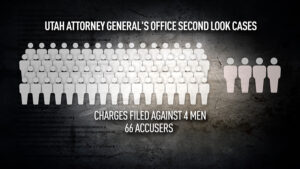
(KSL TV)
Arguello said the small number of charges is to be expected. By the time the reports reach him, he said they’ve often already received a careful look.
“I think the value in 281 should be measured, not in the number of cases that we file, but by the process itself, in the ability for victims to go through a different, additional process to have a different set of eyes, with significant experience, look at the case,” Arguello said.
It’s difficult for victims when the office can’t bring them justice, Arguello acknowledged.
“But the reality is, I’m not going to be able to make everybody happy,” he said. “And I have to focus on the law and the facts.”
A serial rapist convicted
When Rylee Ray was 17, Braydon Brailsford, a 19-year-old she’d met on social media, invited her over for dinner and a movie. She told him repeatedly she didn’t want to have sex, but he raped her and tried to strangle her in October 2020, court records state.
“I feared for my life that night,” Rylee Ray, now 20, recalled.
In a written statement provided to the KSL Investigators, Box Elder County Attorney Stephen Hadfield said Rylee Ray’s case was the first their office received against Brailsford.
“Unfortunately, due to some difficult evidentiary issues which could not be overcome, there was not a reasonable likelihood of proving the case against Mr. Brailsford beyond a reasonable doubt,” Hadfield wrote.
He said it was a difficult decision, and as his office later learned about additional cases naming Brailsford and evidence allowed prosecutors to move forward with charges, his office deferred to the Attorney General’s Office to avoid duplicative efforts.
“Fortunately, given the large number of different victims and the similarity of Mr. Brailsford’s criminal conduct against each of the victims, the Attorney General’s Office was able to overcome the evidentiary issues in the case which had been declined by the Box Elder County Attorney’s Office,” Hadfield wrote.
The Attorney General’s Office, in partnership with law enforcement, discovered several more victims and charged Brailsford in the sexual assaults of seven girls and women under the age of 20. Brailsford pleaded guilty to three counts of rape and one count of forcible sodomy in August 2022 and is now serving a sentence of 20 years to life in the Utah State Prison.
She described her interactions with the office as supportive and encouraging.
“The first thing that Che ever said to me was, ‘You can do this, and I believe in you,” she recalled.
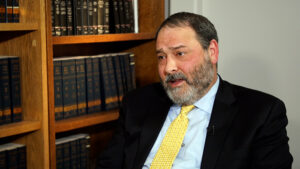
Che Arguello was hired by the Utah Attorney General’s Office in September 2020 to serve as the HB 281 prosecutor. (Josh Szymanik/KSL TV)
Arguello said the success in the case represents what can be done through the second look process. The case his office filed against Brailsford combined reported assaults in three different jurisdictions: Box Elder, Davis and Weber County.
“We were just able to take it and move forward with it in a different way with additional resources, and bring a successful prosecution that, I think, brought some justice,” he said.
‘They bungled this’
The office declined to prosecute Bell’s case, but she told the KSL Investigators it was the process, not the outcome, she found damaging.
Bell says questions that justice division director Craig Barlow asked her while investigating her case in 2019 were invasive and irrelevant.
“I remember Craig Barlow asking me, oh, like, ‘Have you had any other sexual partners? You can tell me even if you’re not going to tell your mom. I can keep a secret,’” Bell recalled.

Tabitha Bell submitted her rape case to the Utah Attorney General’s Office for a second look under HB 281. (Jack Grimm/KSL TV)
That interview was not recorded. But Barlow and three other Attorney General’s employees who were in the room that day later drafted written statements about what happened. Most of these records were dated between four and six months after the meeting.
Bell says those statements misrepresent what happened. For example, Barlow’s statement indicates that Tabitha asked for her own victim advocate to leave the room, an assertion she says is false.
The attorney representing her in that meeting, Greg Ferbrache, agreed.
“Tabitha did not ask for the victim advocate to leave the room,” Ferbrache said. He’d arranged ahead of the interview for the advocate to be present as a support to his client, he added. Both Ferbrache and Bell said it was Barlow who directed the advocate to leave.
In a sworn statement obtained by the KSL Investigators through a public record request, the advocate wrote Barlow’s claim “is 100% false.” The advocate also wrote, “the group was unprepared and surprised by the demand especially after prior approval was granted. It was clear this was not the normal way victim-centered interviewing or investigations are done.”
With the advocate gone, Bell and Ferbrache say Barlow surprised them by reading a detailed and graphic account of the reported assault that was provided by the suspect. The suspect’s report claimed the incident was consensual.
Bell said the experience that day was more harmful to her mental health than the assault she originally reported to police.
“I would not recommend them touching one more survivor’s case,” Bell said.
She left the interview and took an Uber car to the airport to fly back to college in California, she recalled.
“In the Uber itself, I tried to throw myself out of the car. And then when I got to the airport, I literally collapsed on the ground,” Bell said.
Barlow did not respond to a request for comment from the KSL Investigators.
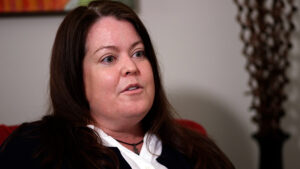
Attorney Jana Tibbitts represented a woman who submitted her rape case to the Utah Attorney General’s Office for a second look under HB 281. (Ken Fall/KSL TV)
Attorney Jana Tibbitts also requested a second look on behalf of a client who’d reported to police that she was raped in 2016.
The woman, who didn’t want to use her name in this report, feared retaliation from the suspect, Tibbitts said. Murray police were also concerned. In a letter to a judge in 2019, the city’s police chief warned that according to a risk assessment, the man ranked 9 on a scale of 1-10, and made “an endorsement of violence” when speaking with a detective.
“We have investigated familicide and homicide cases where assessments have not rated as high,” the chief wrote.
Out of concern for her client’s safety, Tibbitts asked to be alerted before investigators got in touch with the man to schedule an interview.
But in a phone call with Barlow that Tibbitts recorded and provided to KSL, Barlow is heard saying, “we may or may not talk with him. But we’re not going to give you that kind of information.”
Tibbitts says after listening to that call, her client didn’t feel safe moving forward with the review and withdrew her case.
“There’s consequences for not having a system that is hospitable or even remotely sensitive to victims,” Tibbitts said. “They bungled this.”
The suspect was later arrested in Idaho and charged with shooting two police officers.
Trauma-informed prosecutions
Patti Powers, a former prosecutor and a senior attorney advisor for the nonprofit AEquitas who now helps train and teach best practices for prosecuting sex assaults, said investigations should be centered around victims.
“We need to be respectful of their rights: the right to information, the right to notification,” Powers said. “Our work with victims is critical. That really is the heartbeat of any case that we want to advance to justice.”
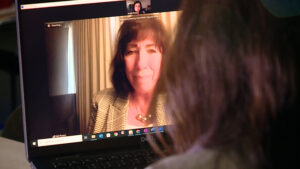
Patti Powers is a former prosecutor and a senior attorney advisor for the nonprofit Aequitas. (Jeff Dahdah/KSL TV)
Powers didn’t want to comment on specific cases but said in general, if someone wants to have a victim advocate present, investigators and prosecutors should accommodate that request.
While there may be a specific reason prosecutors would ask about a victim’s sex life, Powers said, “there usually is not a reason to ask victims about their sexual history.”
As lawmakers debated creating the process in 2019, one Utahn urged them not to assign the Attorney General’s Office to do the job. Terry Mitchell told a legislative panel that the office had investigated her report of sexual abuse against a federal judge a few years earlier. She says she was denied a victims advocate during the investigation and that the office mishandled the assignment in many other ways.
“During our first meeting, Craig Barlow, one of the Utah Attorney General executives, asked me if I enjoyed the abuse and if I had an orgasm,” Mitchell told the legislative committee.
The office has said in the past that there’s no question Mitchell was victimized by the judge and has insisted it followed standard practice for criminal investigations, saying it even filed a complaint with the federal court system.
Mitchell says the shortcomings of the second look process described by other women remind her of her own experience years ago, when she felt she was the one under investigation.
“I’m unsurprised, heartbroken for them, and frustrated. What does it take?” Mitchell said. To lawmakers, she added, “I would say, ‘I told you so. What are you going to do about it?’”
Republican Rep. Karianne Lisonbee, who sponsored HB 281, did not respond to an interview request from the KSL Investigators.
Powers said it’s key for law enforcers and attorneys to keep in mind that most survivors of these crimes live with lasting effects.
“For many victims of sexual violence, it’s a crime that never ends,” she said. “And so, we need to be very mindful of asking questions in a trauma-informed way, so that we’re not exacerbating the trauma that the victim has suffered.”
This report is part of a series examining how apparent gaps at every level of Utah’s criminal justice system fail to protect Utahns.
If you have experienced sexual violence, you can access help and resources by calling Utah’s 24-hour Sexual Violence Helpline at 1-888-421-1100. You can also call the National Sexual Assault Hotline at 1-800-656-4673 for free, confidential counseling.
Have you experienced something you think just isn’t right? The KSL Investigators want to help. Submit your tip at investigates@ksl.com or 385-707-6153 so we can get working for you.


